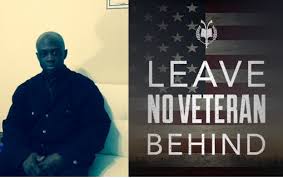Born and raised on Chicago’s South Side, Eli Williamson’s life reflects the complexities, challenges, and triumphs of navigating the city’s streets, pursuing higher education, and serving on the global stage. Growing up on 76th and Phillips, Eli split his childhood between Avalon Park and South Shore, neighborhoods rich in community yet shaped by systemic struggles.
“I loved South Shore,” Eli recalls. “We had a little three-flat on 76th and Phillips, and the church we went to was on 76th and Saginaw. But everything is different now. Coming back in 2008 during the housing crisis, I saw a lot of change—foreclosures, property speculation, and anxiety everywhere.”

Eli’s roots in South Shore were formative, yet his ambition always looked outward. As the son of a dedicated educator, Eli’s early years were shaped by discipline and exposure to the arts. His passion for music led him to Kenwood Academy, where he excelled in choir and band, playing trombone and dreaming of becoming a choral instructor.
“I wanted to compose and teach music,” he says. “But when I got to Luther College on a music scholarship, I realized classical music wasn’t all I imagined. It felt too rigid—like eating salad every day. I needed something different.”
That need for change led Eli to the military, inspired by a roommate’s suggestion. He joined the U.S. Army Reserves, starting as a heavy diesel mechanic and later transitioning to psychological operations, a role that combined his interest in communication and strategy.
Serving on the Frontlines
Eli’s military career took him across the world, including deployments in Iraq and Afghanistan. As part of the Joint Special Operations Command, Eli worked alongside Navy SEALs and Army Rangers, leveraging psychological operations to influence and mitigate conflict.
“It’s like crisis PR with guns,” Eli explains. “We’d carry loudspeakers to calm tensions, collect passive intelligence, and try to prevent violence. Military life wasn’t about balance—it was about projection, power, and getting things done.”
Despite the high stakes of his work, Eli describes the military as both exhilarating and taxing. “Carrying 100 pounds through mountains takes a toll,” he says. “But it teaches you discipline and resilience in ways you can’t learn elsewhere.”
A New Mission
After nearly a decade of service, Eli faced a pivotal moment: the birth of his daughter. “Having a baby girl softened me,” he says. “I realized I couldn’t keep living for the military—I needed to be present for my family.”


In 2008, Eli returned to Chicago with a vision to serve his community. Partnering with a fellow veteran, he co-founded a nonprofit aimed at addressing student loan debt for veterans. Their unique approach offered retroactive scholarships, requiring recipients to give back through community service.
“People often ask where you start with community work,” Eli reflects. “The truth is, the community tells you what it needs. You just have to listen and figure out how to help.”
What began as a focus on scholarships grew into a multifaceted organization addressing food security, violence prevention, and job creation. One of their key initiatives, Safe Passage, employed veterans to provide safe routes for students traveling to and from school, reducing violence in high-risk areas.
“Fifteen years later, we’ve created over 2,000 transitional jobs and paid out over $12 million in wages,” Eli shares proudly.
Mentorship and Advocacy
Beyond his nonprofit work, Eli has become a mentor to young Black men, helping them navigate the pressures of identity and purpose in a digital age. He emphasizes the importance of knowing one’s value and building a life rooted in skills and self-respect.
“Men who don’t know their worth are easily judged by others and by themselves,” Eli explains. “If you don’t learn and grow, you’ll be used by society. That’s why I tell young men to get back to the basics—learn skills, stay grounded, and stop letting the internet define your identity.”
A Legacy of Service
Eli’s journey from South Shore to the military and back to his community showcases his unwavering commitment to service. Whether mentoring youth, creating jobs for veterans, or addressing systemic issues, Eli remains a driving force for change.

“Why do I care? Because I’ve seen what’s possible,” Eli says. “Chicago is a city of potential, and it’s up to us to make it better—for ourselves and for future generations.”
Today, Eli continues to inspire through his work, showing that resilience, adaptability, and a deep love for community can transform lives. From the streets of South Shore to the frontlines of global conflict, his story is a testament to the power of service, perseverance, and hope.
Joy Williams recently became the Associate Editor of South Side Drive Magazine.






